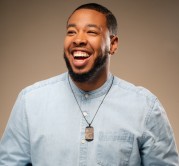Credit unions caught in the BLM cross-fire

With the headline making news last week that the NCUA and FDIC are the least diverse workforces among federal financial regulators following the member uprising over lack of credit union board diversity in California, credit unions must take note of the myriad of risks involved by not making diversity, equity and inclusion a strategic initiative. The good news is that it also presents a tremendous opportunity to increase innovation, employee retention and the authenticity of the credit union brand of social responsibility.
This work, however, cannot be a performative statement, meaning performance only. A statement in support or generalized training without equity outcomes is performative. Even those statements in reply to DEI crisis communication will make matters worse, not better, leading to potential boycotting and continued media scrutiny.
A board lacking diversity – without board turnover through accessible nomination process – isn’t racist. But, it has not considered what the roadblock created by the existing system means to equity. Without a Black voice on the board, there is not a policy perspective on what impacts those members. For example, whose voice is championing the board discussion on overcoming the specific and unique barriers to home ownership?
The blind spot leading to these headlines is the lack of awareness of the systems created without equity in mind. It’s not likely that your credit union, built on the principle of inclusion, is racist. It’s simply difficult to see what you do not know, and then take action to change it. That’s why DEI is essential. We can only change what we are aware of as biased. Making a statement of support is easier and more comfortable than creating meaningful change.
A recent study published by BAI discovered that out of 475 financial services employees surveyed, 86% indicated their organization was committed to diversity. That same study also found through other key measurements that many organizations struggle with developing a comprehensive plan and approach to DEI, as well as measuring it quantitatively and qualitatively. The reality is that many organizations want to do good, but there is disconnect between desire and outcome, which is why benchmarks are essential.
Prior to now, many credit unions limited DEI to new hire orientation and measurement of staff diversity. Unfortunately, that diversity isn’t at the executive level driving process and policy. That is the missing equity in DEI. Only 5% of CEO positions are people of color, and 90% of board members are White, which is mirrored in executive team composition, according to CUNA.
Both through education and implementation of DEI programs, I found the process of navigating transformative change to be multilayered, requiring a multiyear approach with goals and benchmarks. In fact, when consulting we create a three-year DEI strategic plan for each credit union. DEI should be elevated to a strategic objective, touching all facets of the operation. Anything less than that will remain at the performative level, rather than truly transformative change. This alone maintains the current level of risk for credit unions and stagnates all positive outcomes of DEI.
Implementing DEI correctly centers around five key areas: Community Development, Board Governance, Management, Brand and Culture. All areas require a multistep process for implementation. Each is vital to ensuring full execution of the strategy. Getting started is the hardest part and buy-in at the top is vital. Our recommendation for a credit union that is serious about doing this work is to elevate this discussion to the board level. What is your organization seeking to accomplish? Where do you stand now? Are you willing to make this a strategic objective? Do you understand the long-term commitment required? Once you navigate these questions and have determined your true commitment to DEI, the next step is to move forward with an action plan.

